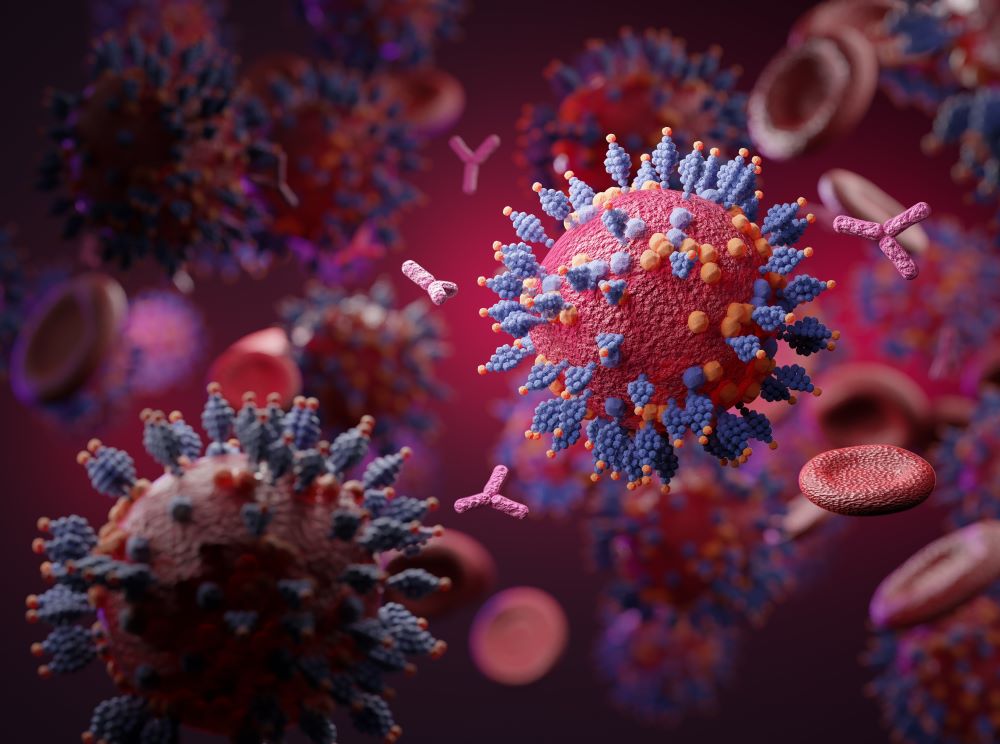
This blog post was reviewed and updated in July 2025.
With the emergence of the NB.1.8.1 and XFG COVID-19 variants (sometimes referred to in the media as the Nimbus and Stratus variants), some people are asking how these new lineages - or groups of genetically similar viruses - compare to other variants.
What have we seen so far?
XFG and XFG currently account for around 40% of COVID-19 cases in England, while NB.1.8.1 accounts for around 7% of cases.
Current data does not indicate that these variants lead to more severe illness than other variants in circulation. Our latest surveillance data also shows that COVID-19 activity decreased across most indicators and was at baseline levels.
The most important thing to do is to get your vaccination when it is due if you’re eligible. It’s normal for viruses to mutate and change, and as more data becomes available on this variant we’ll have a better understanding of how it interacts with our immune systems and how to optimise our protection, as well as actions we can take to keep the most vulnerable safe and live our lives as normally as possible. .
If people become unwell, and are unsure if they have COVID-19, what should they do?
If you have symptoms of a respiratory infection, such as COVID-19, and you have a high temperature or do not feel well enough to go to work or carry out normal activities, you should avoid contact with vulnerable people and stay at home if possible.
For those of us who absolutely can’t stay at home, our Living with COVID guidance is unchanged, and outlines how to prevent transmission to others.
What vaccination programme is in place for COVID-19 in the UK?
Vaccines remain our best defence against severe disease and hospitalisation from flu and COVID-19. Our spring 2025 COVID-19 vaccination programme is now closed but NHS England will confirm details on how and when eligible people can access the autumn vaccine in due course.
What surveillance systems are in place?
At present, we publish the latest surveillance data for COVID-19 and other respiratory illnesses fortnightly, to the UKHSA data dashboard. We’re also getting vital data from those who are admitted to hospital with symptoms, and we are utilising genome sequencing to understand which variants people are most vulnerable to.
There are also specific surveillance programmes in place, where small sample groups are tested regularly. These allow us to monitor trends in the wider community.
Hospital is where we will see the more severe cases, and we will be monitoring the numbers of people attending with COVID-19 symptoms very carefully. This will help us understand the growth rate and transmission potential of the new variant.
We continue to collaborate globally with health organisations in other countries, WHO and initiatives such as the Global Influenza Surveillance & Response System (GISAID) to ensure that we have the most current data.
There are also specific surveillance programmes in place, where small sample groups are tested regularly. These allow us to monitor trends in the wider community.
What is the UKHSA doing to tackle the new variant?
When a new variant appears on our radar, at the initial stages it is often quite difficult to know whether the mutations provide any advantages to the virus. Genetic mutations happen all the time, and in some cases have been known to make a virus less transmissible or cause a milder reaction in people.
